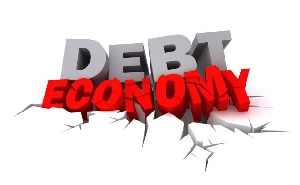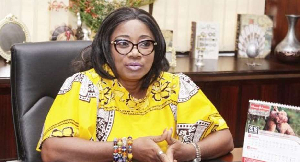Ghana’s debt increase of 137 percent between 2016 and 2020 is lower than that of previous administrations, Finance Minister, Ken Ofori-Atta has disclosed.
Comparing debt levels of all the past governments, Mr Ofori-Atta said the rate of increase in debt presently, was lower than that of former President John Kufuor, late former President John Mills and former President John Mahama administrations.
Addressing the media amidst ‘fix the country’ protest, the Finance Minister said, between 2004 and 2008, Ghana’s debt stock increased by 30 percent. However, it was high between 2000 and 2004, a period in which the country obtained debt forgiveness from multilateral and bilateral institutions.
Also, between 2008 and 2012, the debt stock increased by 269 percent, whilst between 2012 and 2016, the increase in the debt stock was 243 percent.
“Between 2016 and 2020, the increase in Ghana’s debt stock was 137 percent (This includes the cost of the banking sector clean-up, excess capacity charges and the impact of the COVID-19 pandemic),” Mr Ofori-Atta said.
“We have financed the construction of seven ongoing interchanges across the country, including those at Takoradi, Tamale, Tema, Obetsebi Lamptey and Pokuase to ease traffic congestion and enhance productivity, ” he said.
Despite the impact of the pandemic, he said, the rate of growth of the public debt has been lower under this government than under previous administrations.
He said “The rate of debt growth was lower despite massive investments in our flagship programmes such as free SHS, Planting for Food and Jobs (PFJ), NABCO, One District One Factory (1D1F), One Constituency One Ambulance, One Village One Dam (1V1D), restoration of teacher and nursing training allowances amongst others while maintaining relative macroeconomic and exchange rate stability.”
The total public debt had increased from GH¢122 billion (56.9% of GDP) in 2016 to GH¢291.6 billion (76.1 percent of GDP) at the end of December 2020.
Mr. Ofori-Atta said the debt stock and the debt/GDP ratio at the end of 2020 are as a result of non-recurrent burdens that the nation had to deal with as a matter of urgency.
Ghana’s total public debt stock reached an all time high of GH¢291.6 billion in December 2020, approximately 76.1 percent of GDP, the Bank of Ghana said.
According to the figures, external debt alone stood at GH¢141.8 billion, approximately US$24.7 billion. This is also equivalent to 37.0% of GDP.
The domestic debt was however slightly higher at GH¢149.8 billion at the end of 2020, about 39.1 percent of GDP.
The financial sector debt also stood at GH¢15.3 billion in December 2020, but GH¢100 million lower, from the September 2020 data. This is however equivalent to 4.0 percent of GDP.
Click to view details



Business News of Saturday, 15 May 2021
Source: ghanaiantimes.com.gh

















